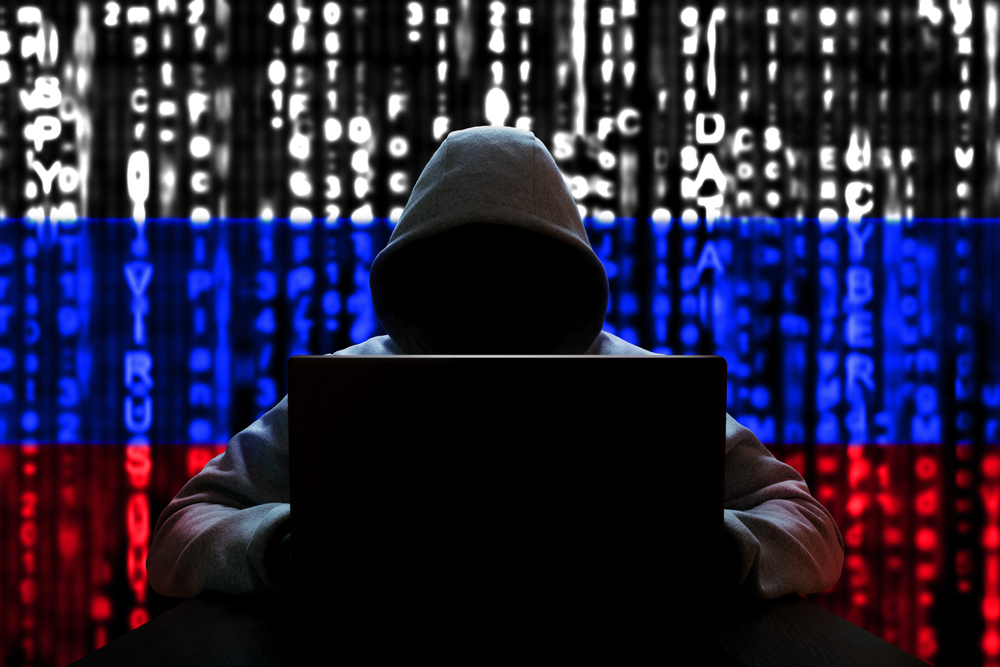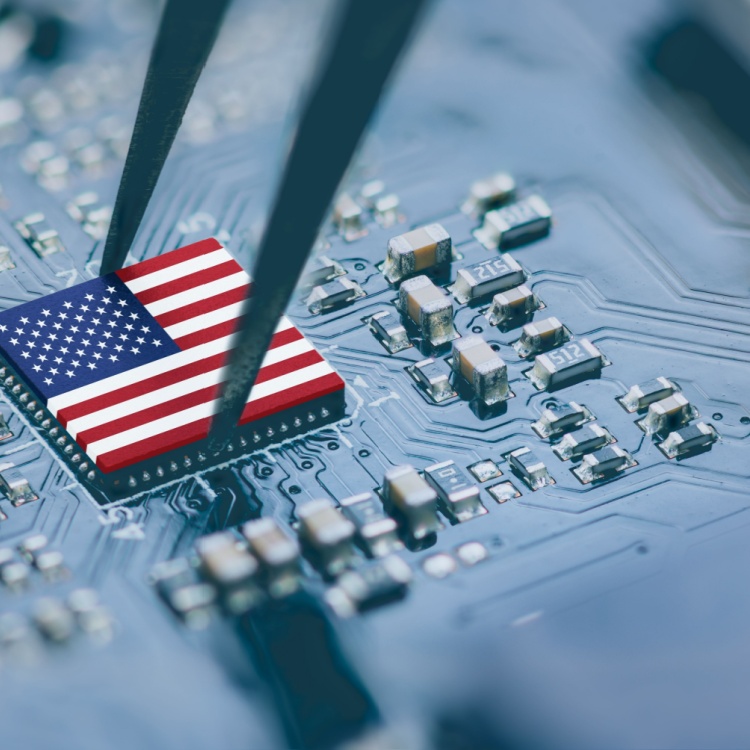The Virtual Battlefield: Tech and Ukraine

As the war rages in Ukraine, the tech industry is throwing its power, resources, and scope behind a nation under fire.
The Russian invasion of Ukraine is the largest military action that Europe has seen since World War II. Joining in the fight, industry bigwigs and ordinary citizens are using technology to take up arms and rally support.
Big Tech
Microsoft
Even before Russian troops set foot on Ukrainian soil, the war was already being fought on the virtual battlefield. Hours before the Russian invasion, Microsoft’s Threat Intelligence Center (MSTIC) detected destructive malware targeting Ukraine’s digital infrastructure. After informing the Ukrainian government about the malware, Microsoft provided technical advice.
“Since the war began, we have acted against Russian positioning, destructive or disruptive measures against more than 20 Ukrainian government, IT, and financial sector organizations,” Microsoft president Brad Smith wrote in a blog post. “We have also acted against cyberattacks targeting several additional civilian sites. We have publicly raised our concerns that these attacks against civilians violate the Geneva Convention.”
Cracking down on disinformation and propaganda, Microsoft will no longer display state-sponsored RT and Sputnik content on the Microsoft Start platform (including MSN.com). The company de-ranked RT and Sputnik News search results on Bing and banned their advertisements from the entire ad network. Microsoft has also suspended all new sales of Microsoft products and services in Russia.
Apple
In an email to employees, Apple CEO Tim Cook enumerated the actions that the company has taken in response to Russia’s invasion of Ukraine. Apple halted sales of all its products in Russia and limited services such as Apple Pay in the country. Apps for Russian state-owned media outlets RT and Sputnik are no longer available for download from the App Store outside of Russia. The company also disabled traffic and live incidents in Apple Maps in Ukraine as a safety measure for citizens.
“This moment calls for unity, it calls for courage, and it reminds us that we must never lose sight of the humanity we all share,” Cook wrote in his email. “In these difficult times, I take comfort in knowing that we are united in our commitment to each other, to our users, and to being a force for good in the world.”
PayPal
Financial services company PayPal shut down its services in Russia last March 5. “PayPal supports the Ukrainian people and stands with the international community in condemning Russia’s violent military aggression in Ukraine,” company president and CEO Dan Schulman said in a message to PayPal employees. “The tragedy taking place in Ukraine is devastating for all of us, wherever we are in the world.
Last week, PayPal announced it is expanding services in Ukraine to make it easier for customers to send and receive peer-to-peer (P2P) payments. It is temporarily waiving its own transaction fees for Ukrainian PayPal wallets. Ukrainian customers can transfer funds from their PayPal accounts to MasterCard and Visa cards. This is a feature they can access even if they have sought refuge in other countries.
“As the crisis in Ukraine deepens, there is an ever growing need to help people in the region access critical humanitarian funds,” the company said in a press release.
(Also read: Contactless Payment and The New Normal)
On March 1, Google launched an SOS alert on Search across Ukraine, pointing users to UN resources for refugees and asylum seekers. To protect the safety of local communities, it also disabled certain live features on Google Maps in Ukraine that provide information on traffic and how busy an area is.
Across Europe, Google blocked YouTube channels connected to Russian state-owned media outlets RT and Sputnik. It has also prevented these media outlets from advertising or monetizing their content on their platforms.
Google’s security teams are working 24/7 to protect local users and important Ukrainian websites. The company has also increased Google account security protections in the region.
“The Russian invasion of Ukraine is both a tragedy and a humanitarian disaster in the making,” Kent Walker, the company’s president for global affairs, said in a blog post. “Our teams are working around the clock to support people in Ukraine through our products, defend against cybersecurity threats, surface high-quality, reliable information and ensure the safety and security of our colleagues and their families in the region.”
(Also read: How to Protect Yourself from the Rise of Ransomware)
SpaceX
“@elonmusk, while you try to colonize Mars — Russia try to occupy Ukraine! While your rockets successfully land from space — Russian rockets attack Ukrainian civil people! We ask you to provide Ukraine with Starlink stations and to address sane Russians to stand,” Mykhailo Fedorov, Vice Prime Minister of Ukraine and Minister of Digital Transformation of Ukraine, said in a February 26 tweet.
The following day, SpaceX CEO Elon Musk tweeted that Starlink services were now active in Ukraine and that terminals were en route.
Starlink would not be able to get Ukraine back online if there is a nationwide blackout, according to Alp Toker, director of web monitoring group NetBlocks. But it could provide hotspots for critical services, such as resistance groups, journalists, and public officials “fortunate enough to have access to the equipment."
However, the telecommunications equipment needs to be used with caution on a case-by-case basis. “There is always risk associated with new technologies in warzones, where being found with unfamiliar equipment can single out journalists or activists for closer scrutiny,” Toker told CNN via email. “There's also the specific risk of getting traced and triangulation via [radiofrequency] emissions when it comes to telecommunications equipment."
(Also read: Space Tourism: A Primer for 2022)
Meta
Meta has removed access to RT and Sputnik on Facebook and Instagram. It has also prevented these media outlets from monetizing content on Meta’s platforms. The company is also globally demoting content from Russian state-controlled media outlets on Facebook Pages and Instagram accounts.
Stopping chip sales
Semiconductor manufacturers around the world are halting sales to Russia. These include Intel and AMD, two of the largest US microchip manufacturers. Taiwanese manufacturer TMSC, the world’s largest semiconductor manufacturer, and South Korea-based Samsung Electronics are also suspending shipments.
(Also read: Chip Shortage Puts the Auto Industry on Edge)
Taking up arms in the digital realm
It’s not just industry leaders taking a stand. People around the world are using technology to rally behind Ukraine.
Donations of close to USD 100 million in cryptocurrency have poured into Ukraine. Nadya Tolokonnikova, a member of the Russian feminist punk band Pussy Riot, collaborated with crypto organizations. Auctioning off the NFT of a Ukrainian flag, the initiative raised over USD 6.7 million.
(Also read: The NFT Art Market: Boom or Bubble?)
In an interview with Yahoo Entertainment, Tolokonnikova expounded on the merits of blockchain as an organizational tool.
“It helps us to scale our efforts globally, because these days we're facing global issues like peace and war, climate change, global inequality, and all of these problems have to be addressed by the global community,” said Tolokonnikova. “They cannot be solved just on a nation-state level. And I believe that blockchain allows us to communicate and organize our efforts without being sanctioned by governments or corporations.”
Two Ukrainian entrepreneurs in Germany launched UA Talents, a job platform for displaced Ukrainians.
“Millions of people are fleeing from Ukraine’s war zones. Many have lost their jobs or their customers,” co-founder Ivan Kychatyi said in a press release. “Whether they live in other European countries or in safe places in Ukraine, they are united by the will to earn a living to provide for their families or invest back into their country. UA Talents has the ambition to provide job opportunities to as many affected persons as possible.”
In Georgia, Stanislav Sabanov is channeling his expertise in relocating expats to support Ukraine. His website, relocation.ge, connects Ukrainian refugees with volunteers for accommodations, free medical consultations, and humanitarian aid.
“We all have one thing in common–we are against war and wanted to help people who found themselves in a difficult situation," Sabanov shared, referring to the volunteers helping him sort requests.
In the Ukrainian war, technology is helping save, support, and protect the oppressed. The digital realm is another battlefront we must defend.
As one of the Top 21 EMS companies in the world, IMI has over 40 years of experience in providing electronics manufacturing and technology solutions.
We are ready to support your business on a global scale.
Our proven technical expertise, worldwide reach, and vast experience in high-growth and emerging markets make us the ideal global manufacturing solutions partner.
Let's work together to build our future today.
Other Blog



